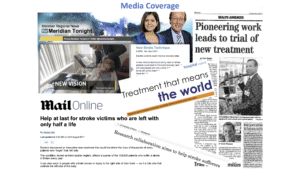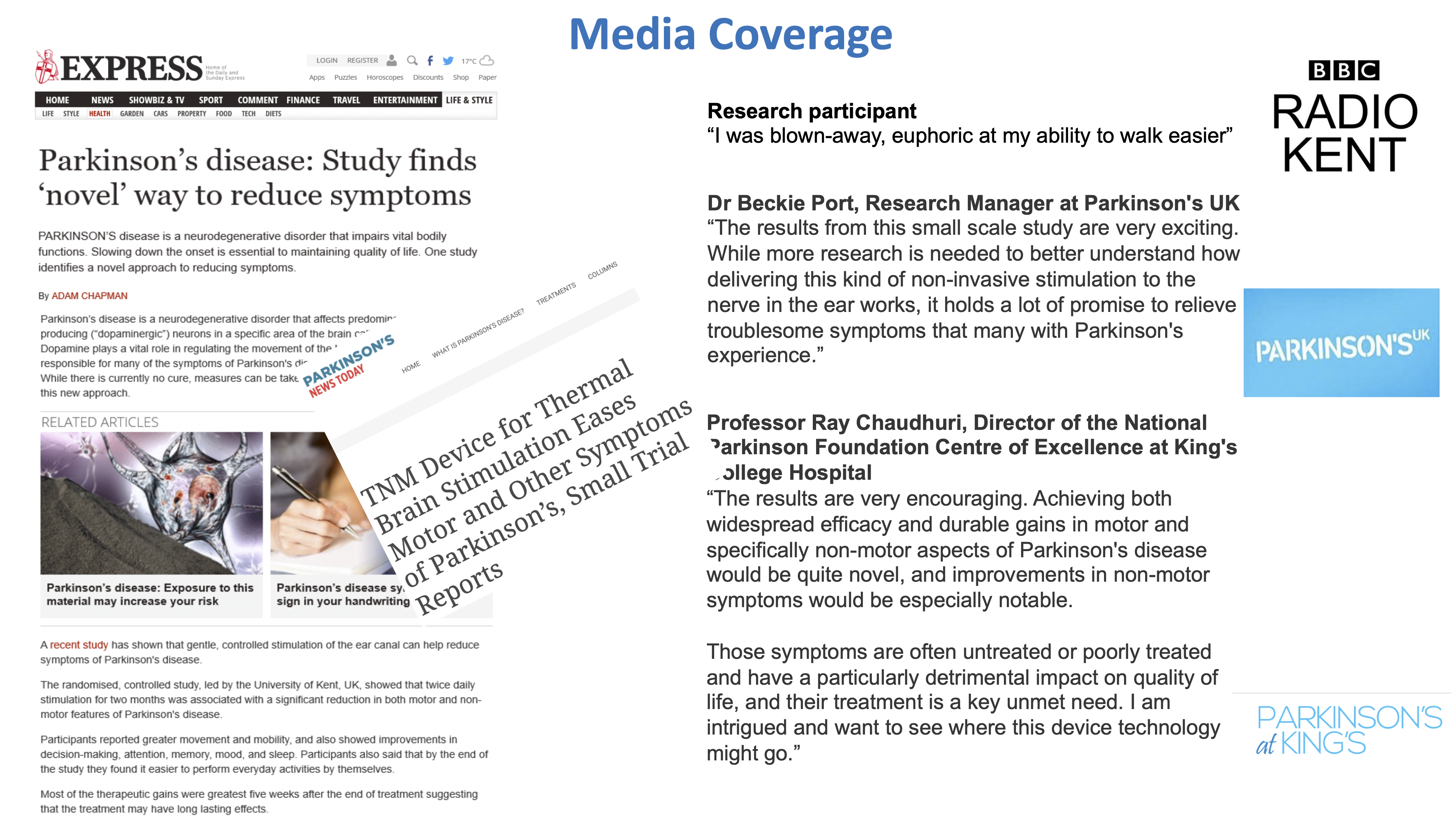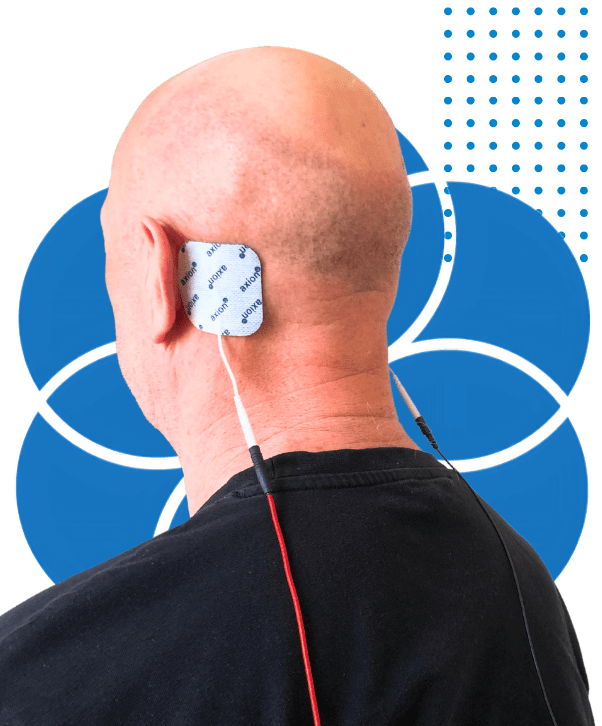
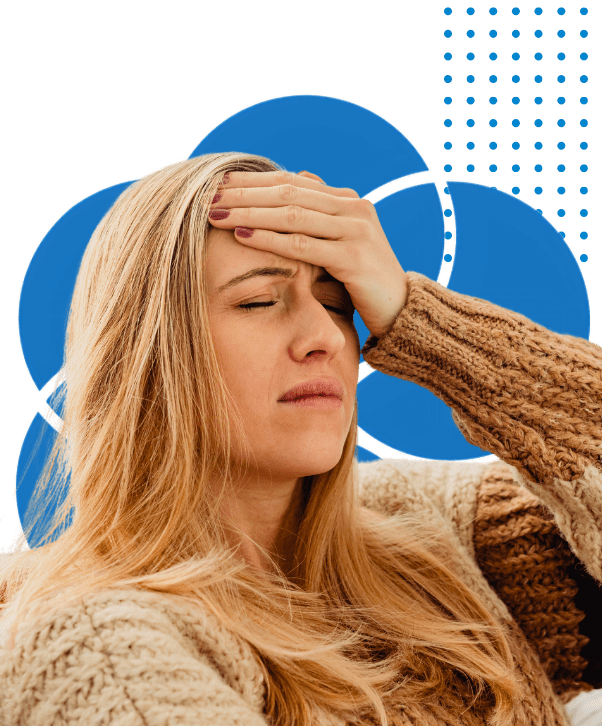

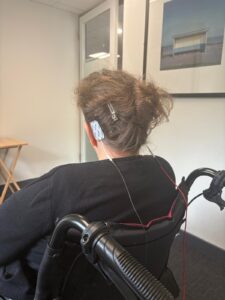
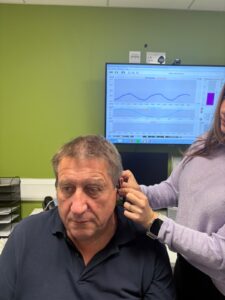
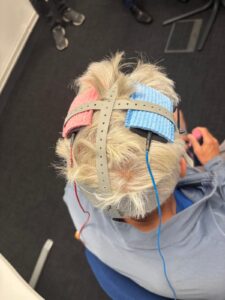
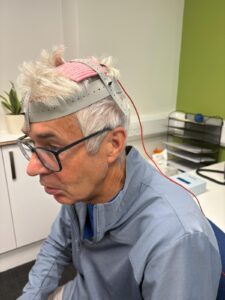
How Non-Invasive Brain Stimulation (NIBS) Works
NIBS is classified as a low risk, well-tolerated therapy that uses small, often undetectable, electrical currents to stimulate specific areas of the brain or nervous system.
The electric currents help unlock a powerful property of the brain known as neuro-plasticity. This enables new connections to be formed and for existing ones to be strengthened. By this process, lost functions can be restored by helping damaged areas of brain work more effectively or other areas of the brain take on the lost function or compensate for it.
Our studies have shown that people can benefit from NIBS for many years after their diagnosis which suggests that the capacity for neuro-plastic change is never fully lost.
During your visit
You will meet with one of our senior therapists to discuss your needs, assess your eligibility, identify what kind of brain stimulation might be right for you and to then explain what the treatment programme involves. The session will also involve answering questions about your condition and your more general physical and mental health. To inform the discussion, we may send you a health questionnaire to complete ahead of the meeting.
Once enrolled on one of our programmes, you will visit the centre for between 2 and 4 weeks to receive your stimulation. Each session lasts no more than 60 minutes, and you will receive 9-12 stimulation sessions from a skilled member of our therapy team. During stimulation you can sit in a comfortable chair and relax. The stimulation is gentle and you should not find it troubling.
On completing the programme, we will provide you with a personalised report that includes details of your condition, the stimulation that you received, any benefits that occurred, and suggested next steps to help you manage your condition more effectively.
Media cover and further reading
Find out more
